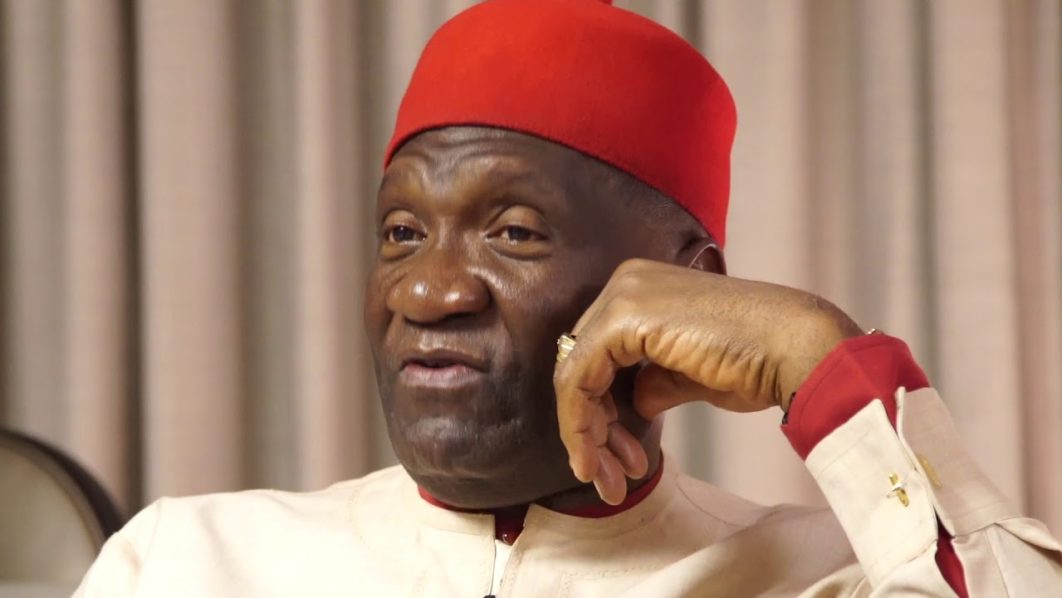
• ‘IPOB Not Terrorist Group’
Former President General of Ohanaeze Ndigbo, Chief Nnia Nwodo, has said the alleged discriminatory action of the Federal Government against the Indigenous People of Biafra (IPOB) by describing members of the group as terrorists is nothing short of fanning the embers of ethnicity, division and hate in the body polity of the country.
Nwodo, also a former Minister of Information and Culture, made the comment at the 14th edition of the Anthony Cardinal Okogie Foundation Annual lecture held on Thursday in Lagos.
The event was to chat a way forward for the country and to raise fund for indigent students on the foundation’s scholarship to continue their studies in the different institutions within and outside the country.
Nwodo, who spoke on the theme, Whither Nigeria: Restructuring, Secession or Status Quo, noted that the self-determination groups, including IPOB, MASSOB, YELICOM, Arewa Youths, Yoruba Nation secessionist groups, Niger Delta and that of Middle Belt, reveal frustration and dissatisfaction of the youths with the economic and political state of the country. “It is their way of projecting their frustration on the present state of affairs in our country.”
He said that of all these groups, “it is unfair and not in conformity with the law to designate IPOB as a terrorist organization.” According to Nwodo, who said he was not completely in agreement with some of the views of the Igbo group,
“IPOB does not constitute enough evidence, like Boko Haram, to meet international law definition of terrorist organisation.”
He said the various groups were dramatising the inadequacy of the nation’s current political structure and the urgent need for change.
Nwodo noted that the 1998/99 constitution, which was approved by the military as legal instrument that governed Nigeria’s transition to democracy in 1998 and still in use, is not autochthonous, adding that it was not written by the people ofigeria or approved in a national referendum.
He explained that the constitution was written at a time of unprecedented increase in national revenue following the massive discovery of oil in the country and its global reliance as a source of fuel for mechanical machines.
According to the Igbo leader, the constitution has as its centrepiece, the distribution of national revenue and national offices, using states and local governments as units for division. He added that the constitution constructed a federation in name, but a unitary government in practice, following the pattern enunciated in 1966 from inception of military administration in the country.
Nwodo lamented that the constitution destroyed competition and drive for production by the federating units, saying each state and local government waited every month for proceeds from oil generated revenue to be divided out to them.
“The Federal Government became enormously powerful, taking over mining rights, majority control of the oil sector, construction of interstate highways, major educational establishments, rail and water transport, power and several infrastructural responsibilities previously undertaken by the regions.”
Nwodo called on the Federal Government to change it current growth model based on sharing of government revenue to a new structure that will challenge and drive productivity in different regions across the country.
Lagos State Governor, Babajide Sanwo-Olu, represented by the Special Adviser on Drainage and Water Resources, urged Nigerians to take caution in their clamour for restructuring of the polity, saying we have many more things in common than whatever will separate us.



